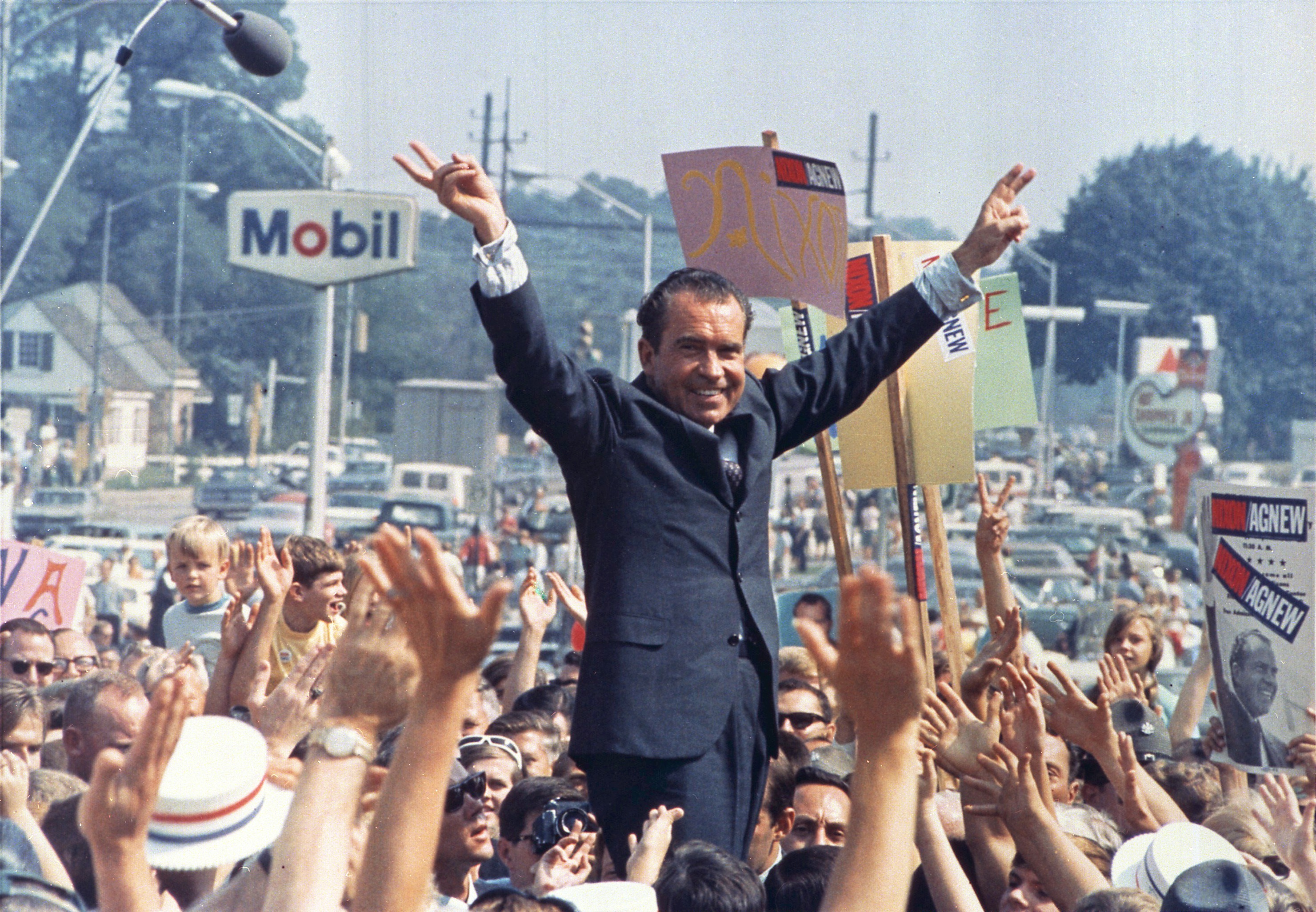Like it or not, we're still in his world
There's been a lot of talk comparing the current election year to 1968, which has me thinking about the right and wrong ways to use historical metaphors. They can be put to deadly effect, after all. During the run-up to the invasion of Iraq in 2003, the ghosts of the Munich Conference of 1938 were constantly being invoked. The "lesson" to learn was that the dictator Hussein had to be stopped. Of course, the comparison was ridiculous, since Hussein did not have designs on expansion, as Hitler did in 1938. Nevertheless, it worked.
Comparisons of 2016 to 1968 are more valid, but also overstate things. We are seeing a great amount of social upheaval this year, but not like 1968's assassinations, burning of cities, and the raging of the Vietnam War. This does not mean that we can't learn anything from looking at 1968, but just to be aware that we are living in different times. The mass shootings of today were little known in 1968, apart from Charles Whitman's infamous actions in 1966. While Trump's campaign resembles that of George Wallace's that year, he has been running mostly on immigration, which was not a big political issue in 1968. While Trump has been borrowing Nixon's "law and order" rhetoric (which Wallace first pioneered), he does not have Nixon's ability to appeal to a new constituency, since Trump's main appeals are to constituencies that Nixon won over to the Republicans in '68 (white Southerners and white working class more broadly.) The Democrats, despite recent events, are much much more unified now compared to 1968, as yesterday's endorsement of Clinton by Sanders shows.
We are in very different times, but there are themes we can see both in 1968 and 2016: mass uprisings against racism, populist white nationalist backlash, major political party realignments, and a feeling that violence has become uncontrollable. What we are seeing in some respects is less a repeat of 1968 and more the consequences of its unresolved aftermath. As a recent book by Elizabeth Hinton shows, the urban uprisings and increased crime rates led to a massively increased police presence in black neighborhoods, and a feeling among white politicians that attempts to improve the economic prospects of inner city residents, as pioneered by the Great Society, ought to be scrapped because the dysfunction of their targets was too deep to correct. The current mass incarceration, militarized police, and death tolls from killer cops are the legacy of the failed and inhuman response to the urban uprisings of 1968.
Our politics also bear the scars of the late 1960s. As Rick Perlstein points out in his brilliant work Nixonland, Nixon gained power by exploiting the cleavages in American society brought on by the 1960s. By villainizing one side of the divide he knew he could unite the other side, and knew at that time his side was going to be bigger. That redefined our politics in a society where those cleavages over race, religion, and culture have become deeper and more intense with each year. "Liberals" came to stand in for everything wrong and evil and America, and they and their agenda had to be destroyed. This, not supply side economics, is the true heart of modern conservatism, and explains why Congress has taken the unprecedented step of refusing to vote on the president's nominee to the Supreme Court. Thwarting liberals has become the sum total of their political program. It's the same reason why so many rank and file Republicans who seem to really dislike Trump and even find him dangerous are still rallying around him.
2016 is not 1968, but we are very much living in the world that the upheavals of 1968 created. Time will tell if 2016 will be the year that takes a new direction, or keeps progressing toward the breaking point.

1 comment:
I can only imagine what 1968 and its aftermath would have been like if it had occurred within today's context of 24 hours "news" channels, talk radio, social media, etc....
Post a Comment